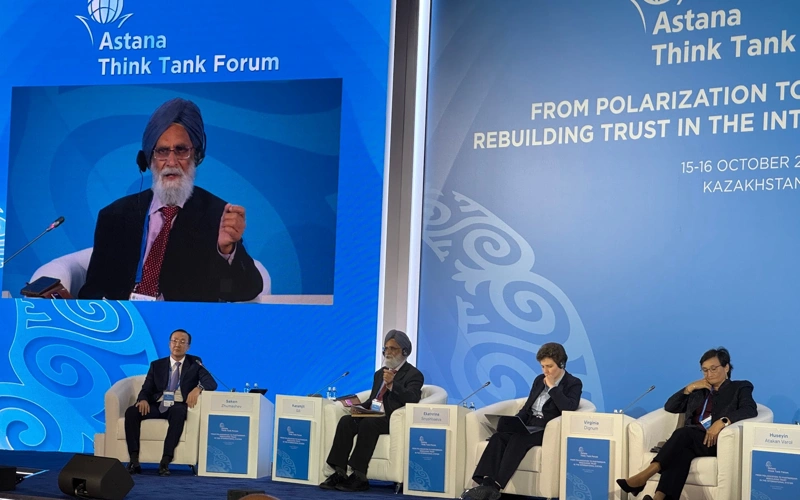Can the world create a single global ethics for AI? Karamjit Gill says ‘no’
The idea of building a universal global ethics for artificial intelligence is unrealistic, because morality cannot exist outside of culture and human context, said Karamjit Gill, Editor-in-Chief of AI & Society: Journal of Knowledge, Culture and Communication and Professor Emeritus at the University of Brighton, during the Astana Think Tank Forum 2025, Kazinform News Agency reports.

According to him, humanity has long sought to balance universal rules of ethics with traditional, socially constructed norms.
“For centuries, societies have been living with - and dealing with - the messiness of the world, constantly redefining what is right and fair within their own cultural contexts,” he said. “Today, as we enter the age of artificial intelligence, the challenge is not to align human ethics with machine ethics - but to find resonance between them.”
Gill warned that the concept of a single “global ethical code” risks erasing moral diversity and replacing cultural dialogue with standardization.
“Why should we pursue a single universal model of ethics when societies can coexist through cultural reciprocity and mutual respect?” he asked.
He explained that global approaches to AI regulation often overlook how moral principles are lived and practiced in different regions.
“Buddhist ethical principles may be universally accepted, but their use, their practice was always culturally complex,” the professor noted.
Gill proposed that rather than seeking consensus, the world should cultivate regional and culturally grounded models of AI ethics, allowing every nation, including Kazakhstan, to shape technologies according to its own values.
“It’s not a question of alignment to something else. It’s public and finding the balance, finding resonance,” he said. “Ethics always vary, hospitality, and reciprocity.”
The scholar emphasized that ethical development should not come from technology alone but from societies themselves.
“Is it possible to design AI which could be reciprocal, emotional, or welcoming to the diversity in which we live?” he asked, encouraging young researchers to explore how local ethics can inform responsible AI systems in health, environment, and education.
“Technology can serve humanity only when it reflects our capacity for fairness, hospitality, and empathy,” Gill concluded.
Earlier, at the same forum, Professor Yang Cheng from Shanghai International Studies University said AI should serve as a bridge between China and Kazakhstan, opening new opportunities for cooperation in technology and education.
